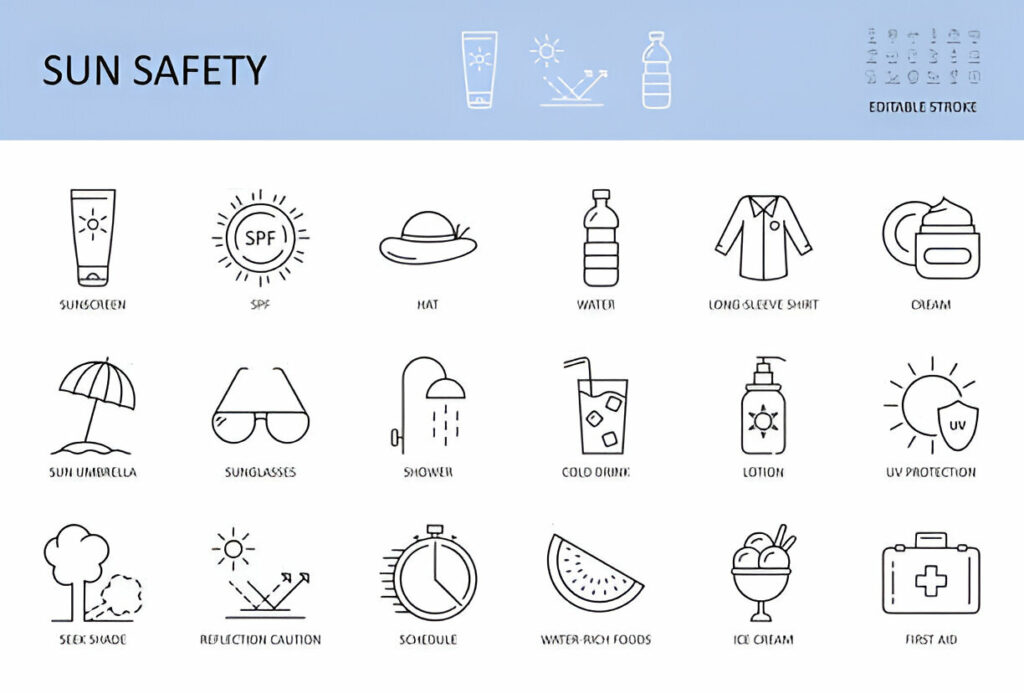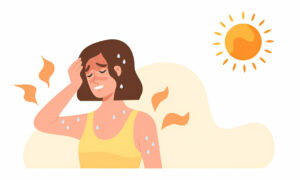Summer is a time for outdoor fun, vacations, and relaxation. However, the hot weather and increased outdoor activities come with certain health risks. To ensure a safe and enjoyable summer, it is important to be aware of potential dangers and take preventive measures.
As the mercury climbs and the sun blazes, the allure of summer fun can quickly turn into a health hazard if precautions aren’t taken. From late spring through the sweltering dog days of summer, understanding and preventing heat illnesses is crucial. This article provides essential information and quick tips to keep you safe and healthy during the hottest months.
Beat The Heat – Summer Health Hazards You Must Avoid

Summer brings a host of potential health risks. Here are 10 key hazards to be aware of:
- Heatstroke: A life-threatening condition where the body’s temperature regulation system fails. Symptoms include high body temperature, confusion, and seizures.
- Heat Exhaustion: A milder form of heat injury, causing heavy sweating, dizziness, and nausea.
- Sunburn: Excessive exposure to UV radiation can lead to painful skin damage and increase the risk of skin cancer.
- Dehydration: Losing too much fluid can lead to serious health problems.
- Food Poisoning: Bacteria thrive in warm temperatures, increasing the risk of foodborne illnesses.
- Insect Bites and Stings: Mosquitoes, ticks, and bees are more active in summer, potentially transmitting diseases or causing allergic reactions.
- Waterborne Illnesses: Swimming in contaminated water can lead to infections.
- Air Pollution: Increased sunlight can worsen air quality, especially for those with respiratory conditions.
- Eye Damage: Prolonged exposure to UV rays can damage the eyes.
- Drowning: Increased water activities lead to more instances of this hazard.
Preventing Heat Illnesses During Late Spring into Summer
Prevention is key to avoiding heat-related illnesses. Here are some essential strategies:
- Stay Hydrated: Drink plenty of water throughout the day, even if you don’t feel thirsty.
- Avoid Peak Sun Hours: Limit outdoor activities during the hottest part of the day (typically 10 a.m. to 4 p.m.).
- Wear Lightweight Clothing: Opt for loose-fitting, light-colored clothing to allow your body to cool effectively.
- Use Sunscreen: Apply a broad-spectrum sunscreen with an SPF of 30 or higher.
- Seek Shade: Find shade whenever possible, especially during peak sun hours.
- Never Leave Anyone in a Hot Car: Temperatures inside a parked car can quickly become deadly.
- Monitor Vulnerable Individuals: Pay close attention to children, the elderly, and those with chronic health conditions.
- Eat Light Meals: Heavy meals can increase body temperature.
- Limit Alcohol and Caffeine: These substances can dehydrate you.
- Cool Down Regularly: Take cool showers or baths, or use cold compresses.
Quick Tips to Save Yourself From Passing Out During Hot Summer Days
If you feel faint or dizzy, take immediate action:
- Move to a Cool Place: Find shade or an air-conditioned environment.
- Drink Cool Water or Electrolyte Beverages: Replenish lost fluids and electrolytes.
- Apply Cold Compresses: Place cold cloths or ice packs on your forehead, neck, and wrists.
- Loosen Tight Clothing: Allow your body to cool down more effectively.
- Rest: Lie down and elevate your legs if possible.
- Seek Medical Help: If symptoms persist or worsen, seek immediate medical attention.
Additional Tips for Staying Healthy This Summer
- Exercise Wisely: If you exercise outdoors, do it early in the morning or late in the evening when temperatures are cooler. Wear breathable fabrics and take frequent breaks.
- Dress Smart: Choose light-colored, loose-fitting clothing made from moisture-wicking materials to stay cool and comfortable.
- Stay Informed: Monitor weather forecasts and heat advisories to plan outdoor activities accordingly.
- Cool Your Living Space: Use fans, close blinds during peak sun hours, and consider using cooling packs or cold compresses to lower your body temperature.
- Protect Your Eyes: Wear sunglasses with UV protection to shield your eyes from harmful rays and reduce the risk of cataracts.
- Know When to Seek Help: If someone shows signs of severe heat illness—such as confusion, rapid pulse, or fainting—call emergency services immediately and move them to a cooler environment.
With the right precautions, you can enjoy summer safely while minimizing health risks. Stay informed, stay hydrated, and stay cool!
